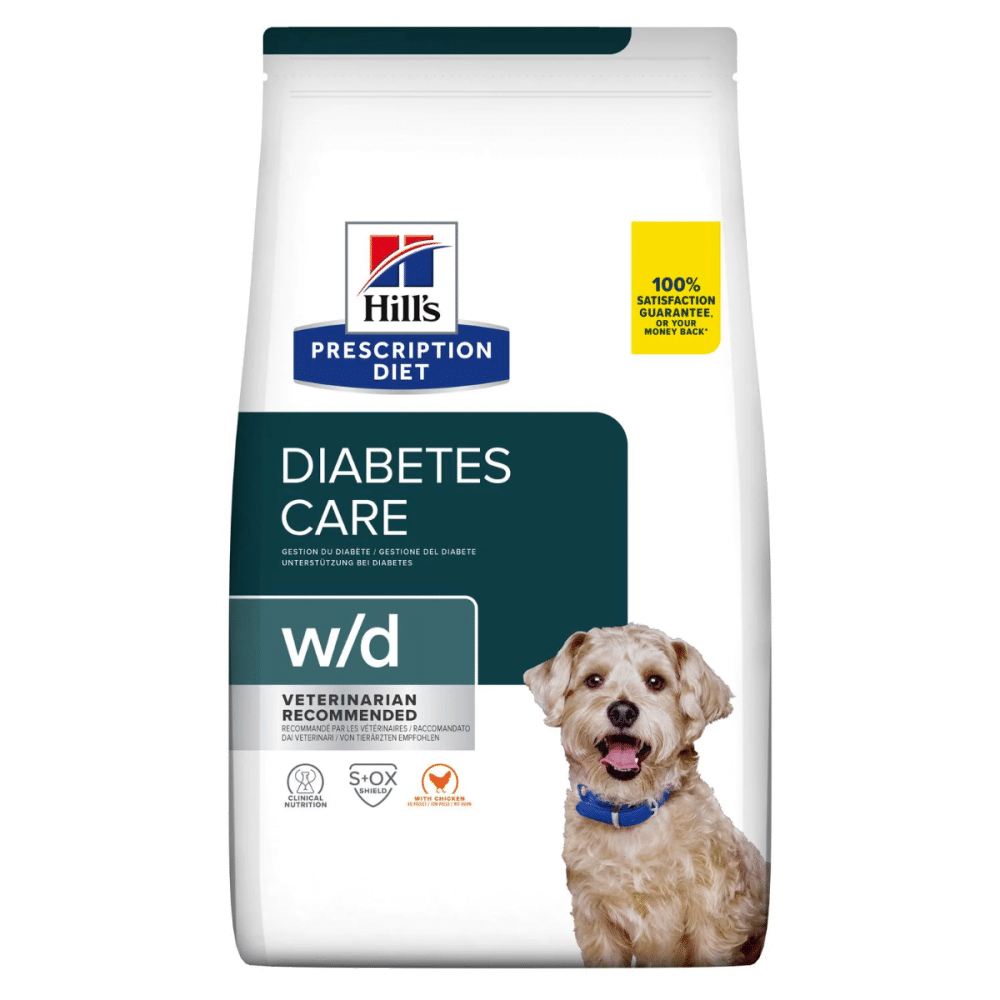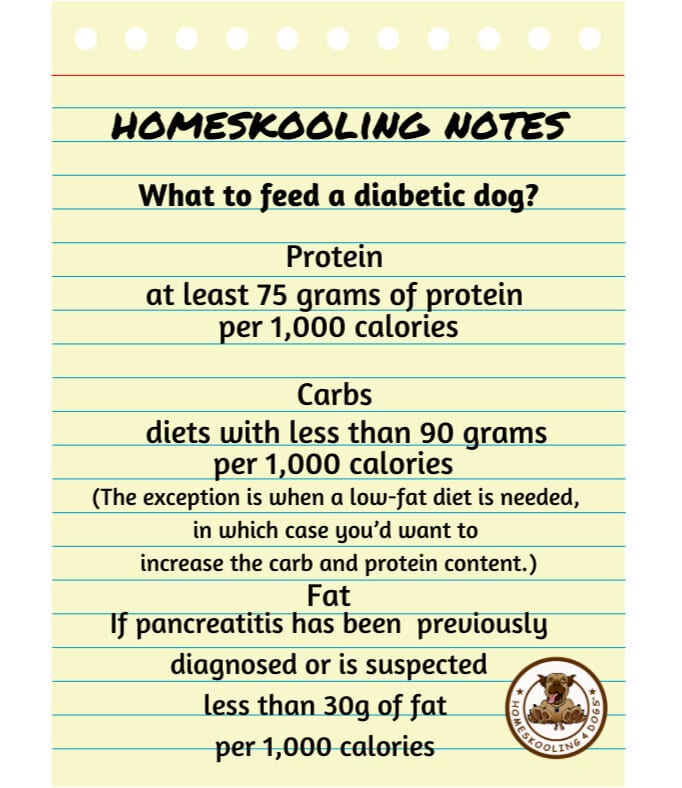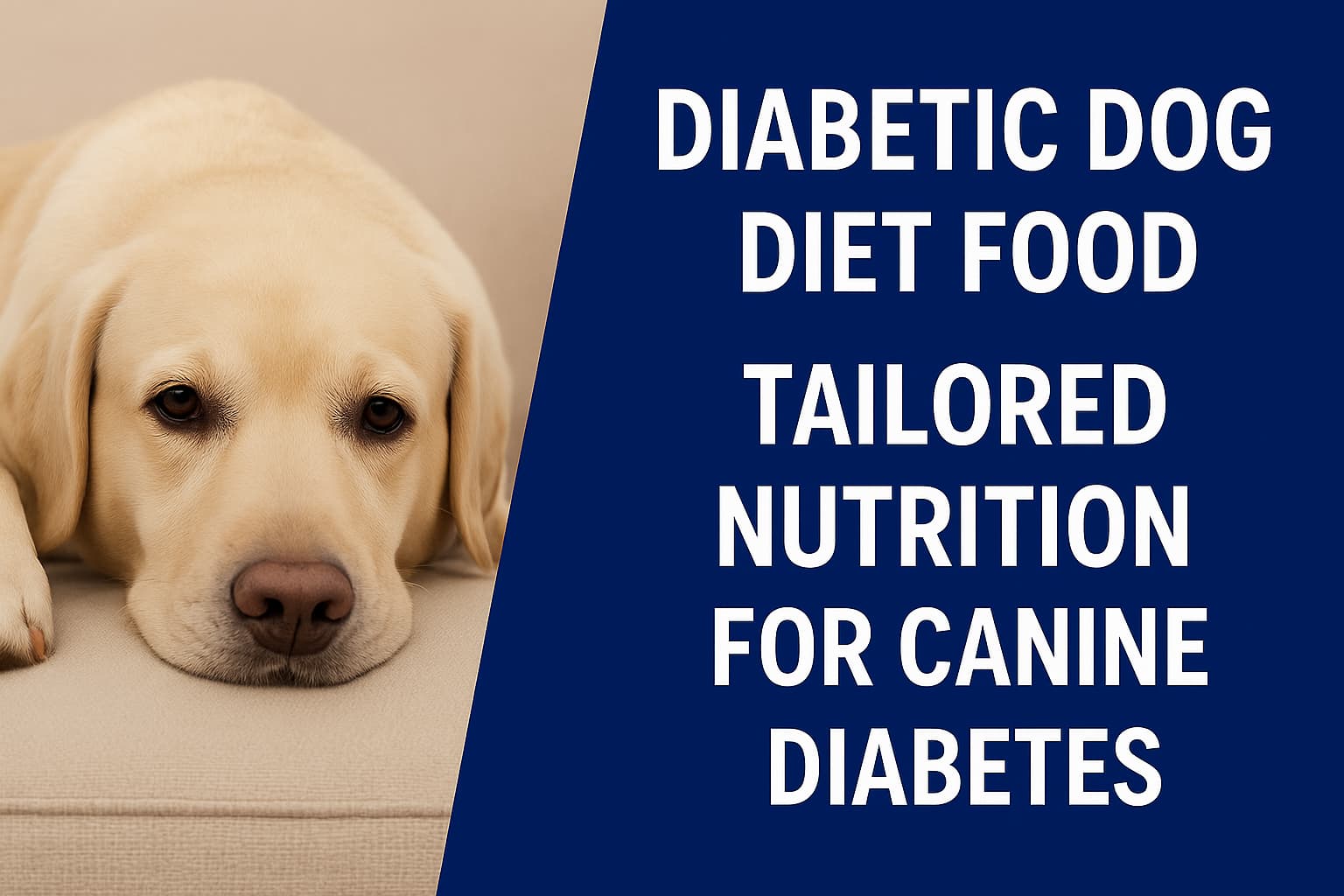Diabetic dogs need special diets. Their food choices impact their health.
Managing a diabetic dog’s diet can be a challenging task. It requires a careful balance of nutrients. A proper diet helps control blood sugar levels. It also supports overall well-being. Choosing the right food for your diabetic dog is vital for their health.
Diabetes in dogs is increasingly common. Like humans, dogs with diabetes need a specific diet. This helps manage their condition. Feeding a diabetic dog involves more than just picking any food. It requires understanding their dietary needs. A tailored diet helps in managing their symptoms. It can prevent complications, too. With the right food, your dog can lead a healthier life. In this guide, we’ll explore what makes a good diabetic dog diet. We’ll provide insights to help you make informed choices. Your dog’s health depends on it.
Introduction To Diabetic Dog Diet
Proper nutrition is key for dogs with diabetes. It helps them stay healthy. Foods should be low in sugar. High-fiber foods are best. Fiber helps control blood sugar. It keeps energy levels stable. A balanced diet is vital. It can prevent complications. Owners should choose foods carefully. Reading labels is essential. Fresh water is also needed. Dogs must stay hydrated. A vet can advise on diet. They know what is best for each dog.
Feeding dogs the right food helps them feel better. It can reduce symptoms. Dogs need a mix of nutrients. Proteins, fats, and carbs are all important. Each one has a role. Protein builds muscles. Fats give energy. Carbs provide fuel. All must be balanced. Diet affects blood sugar levels. It can help control diabetes. Owners should talk to a vet. They can help plan meals.
Managing diabetes in dogs can be hard. It needs daily care. Owners must monitor blood sugar. This keeps levels steady. Insulin shots may be required. Vets can teach how to give shots. Exercise is also essential. It helps control weight. Overweight dogs have more problems. Owners must watch food portions. Too much food can be harmful. Regular vet visits are crucial. They help track progress.

Understanding Canine Diabetes
Dogs can get diabetes, too. Early signs matter. Increased thirst and frequent urination are common. Your dog might lose weight unexpectedly. Fatigue is another sign. Watch for cloudy eyes. It can mean trouble. A vet will check your dog’s blood. They look for high sugar levels. It’s called glucose. If high, it can mean diabetes. Early diagnosis helps. Regular check-ups are good. They keep your dog healthy.
Diabetes changes a dog’s life. Diet becomes crucial. Exceptional food is needed. Exercise is essential. It keeps them fit. A daily routine helps manage diabetes. Consistency is key. Dogs need regular meals. Balanced nutrition helps control sugar. Insulin shots might be required. Vets will guide you. Monitoring is needed. It helps manage symptoms. Dogs can live happily. With care, they stay strong.
Key Nutrients For Diabetic Dogs
Carbohydrates give dogs energy. Diabetic dogs need careful carb choices. Simple carbs cause fast blood sugar spikes. Complex carbs are better. They release sugar slowly. This helps keep blood sugar steady. Foods like brown rice and oats are good. Always check with a vet first. Too many carbs can be harmful. Balance is important.
Fiber is essential for digestion. It helps diabetic dogs feel full. This can prevent overeating. Fiber also slows sugar release. This keeps blood sugar stable. Foods high in fibre include vegetables and beans. Pumpkin is a great fibre source. It is also tasty for dogs. Adding fibre fibre to a dog’s diet can improve their health. Always introduce new foods slowly.
Selecting The Right Dog Food
Commercial dog food can help manage diabetes in dogs. Many brands offer special formulas. Low sugar and high fibre are essential. Some foods have added vitamins and minerals. These allow the dog to stay healthy. Always check the ingredient list. Avoid foods with too many fillers. Consult with your veterinarian before selecting a food. They know what’s best for your dog.
Homemade food is an option too. You control what goes in. Fresh vegetables and lean meats are good. Avoid foods with high sugar. Cooked brown rice is a good choice. It gives energy without sugar spikes. Consult a vet for a balanced recipe. They can guide you on portion sizes. This keeps your dog healthy.
Portion Control And Feeding Schedule
Dogs with diabetes need special meals. The right portion size is significant. This helps manage their blood sugar levels. Consult your vet for advice on portion sizes. They will help you choose the right amount. Different dogs require different amounts—factors such as weight and activity level play a role. Always measure food before serving. Use a cup or scale for accuracy. This keeps your dog healthy.
Dogs love routines. Feeding them at the same time each day helps a lot. It keeps their energy stable. Feed your dog twice a day. This helps in controlling their sugar levels. Ensure you adhere to the schedule. Consistency is key for diabetic dogs. Avoid giving them treats outside of mealtime. It can spike their sugar levels. Please keep track of their feeding times and amounts.

Supplements And Additives
Diabetic dog diet food often includes supplements and additives. These help manage blood sugar levels effectively—ingredients such as omega-3 fatty acids and fibre support healthy digestion and energy balance in diabetic dogs.
Beneficial Supplements
Dogs with diabetes need special care. Omega-3 fatty acids are good for their health. These fatty acids help with joint pain. Antioxidants are essential, too. They fight harmful things in the body. Fiber supplements help with digestion. They keep the dog’s tummy happy. Probiotics are tiny, good bacteria. They help keep the dog’s gut healthy. Vitamins give dogs energy. They make them strong and active.
Additives To Avoid
Not all additives are suitable for diabetic dogs. Artificial sweeteners can be dangerous. They might make the dog sick. Preservatives are not healthy either. They can harm the dog’s liver. Colouring agents are not natural. They might cause allergies. Excess salt is bad for their heart. It can increase blood pressure. Corn syrup should be avoided. It is very sugary and unhealthy.
Monitoring And Adjusting The Diet
Regular check-ups are essential for dogs with diabetes. The vet checks blood sugar levels. They also check their weight and overall health. These check-ups help catch problems early. It is a good idea to have check-ups every few months. This helps keep your dog healthy and happy.
Dogs require different types of food based on their level of activity. More active dogs need more energy. They might need more food. Less active dogs need less food. It’s important to balance food with activity. This helps control blood sugar levels. Constantly adjust the diet slowly and carefully.

Common Mistakes To Avoid
Feeding your diabetic dog the correct amount is crucial. Excessive food consumption can lead to weight gain. This makes diabetes more challenging to control. Eating too little food can cause low energy and weakness. Keep a regular feeding schedule. Measure your dog’s meals carefully. This helps maintain a healthy weight. Your vet can guide you with portion sizes. Watch your dog’s behaviour behaviour and energy levels closely. Adjust the food amount if needed.
Ingredient labels are essential for your dog’s health. Some foods have hidden sugars. These can harm your diabetic dog. Check for high-quality proteins. Avoid fillers like corn and soy. Look for foods with fibre. Fiber helps control blood sugar levels. Watch for low-quality fats. They can lead to weight gain. Reading labels helps make better food choices. Your dog’s health depends on it.
Consulting A Veterinarian
Veterinary guidance is crucial for dogs with diabetes. Vets know about dog health. They carefully inspect the dog’s health. They suggest the best diet. This helps manage diabetes well.
Vets understand each dog is different. They tailor diets to meet specific needs. They consider the dog’s age, weight, and activity level. They make sure the diet is balanced. This supports good health.
Vets also monitor how the dog responds to the diet. They adjust it if needed. This ensures the dog stays healthy. Regular check-ups are essential. They help catch any issues early.
Diabetic dogs need special care. Their diet needs to be specific. Vets choose foods that control blood sugar. These foods are often high in fibre. They avoid foods with too much sugar.
Some dogs need more protein. Others need more fibre. Vets decide the best mix. They choose foods that are easy to digest. This helps the dog feel good.
Vets may suggest a mix of wet and dry food. They choose foods that support overall health. This includes skin, coat, and energy levels.
| Diet Component | Purpose |
|---|---|
| High Fiber | Controls blood sugar |
| Low Sugar | Prevents spikes |
| Balanced Protein | Supports energy |
Frequently Asked Questions
What Is The Best Thing To Feed A Diabetic Dog?
Feed diabetic dogs high-fibre, low-fat diets that include complex carbohydrates. Include lean proteins, such as chicken or fish. Avoid high-sugar foods and treats. Consult your vet for personalized advice. Always maintain regular feeding schedules to stabilize blood sugar levels.
Are Scrambled Eggs Good For Diabetic Dogs?
Scrambled eggs can be a nutritious treat for diabetic dogs. They provide protein without spiking blood sugar levels. Ensure they’re plain, without added salt or seasonings. Always consult your vet before introducing new foods into your dog’s diet. Moderation is key to maintaining balanced nutrition.
Is Peanut Butter Good For Diabetic Dogs?
Peanut butter can be safe for diabetic dogs in moderation. Choose unsweetened, natural peanut butter that is free from xylitol. Always consult your vet before introducing new foods. Monitor blood sugar levels closely after feeding.
Is Wet Or Dry Food Better For Diabetic Dogs?
Wet food is often a better option for diabetic dogs due to its higher moisture content and lower carbohydrate content. It helps maintain hydration and supports blood sugar control. Consult a veterinarian to choose the best diet for your dog’s specific needs. Always prioritise high-quality ingredients and a balanced diet.
Conclusion
Choosing the proper diet keeps your diabetic dog healthy. Balanced meals help manage blood sugar levels. Consistency is key in feeding schedules. Fresh, wholesome ingredients provide essential nutrients. Consult with your vet regularly for updates. Monitor your dog’s response to changes in their diet.
Observe energy levels and mood. Exceptional diabetic dog food can support overall health and well-being. Nutrition plays a vital role in managing diabetes. Love and care make a difference every day. Prioritize your dog’s well-being with thoughtful meal planning. A happy, healthy dog means a happier home.
Keep learning about your pet’s needs. Your efforts matter greatly.
🩺 Reviewed by Dr. Audrey Cook, BVM&S, DACVIM-SAIM, DECVIM-CA
Professor of Small Animal Internal Medicine
Texas A&M University, College of Veterinary Medicine
Dr. Audrey Cook is a globally recognized expert in veterinary endocrinology. With certifications in both U.S. and European veterinary medicine, she specializes in feline diabetes, insulin therapies, and chronic endocrine disorders. Her work influences best practices in clinics worldwide.






